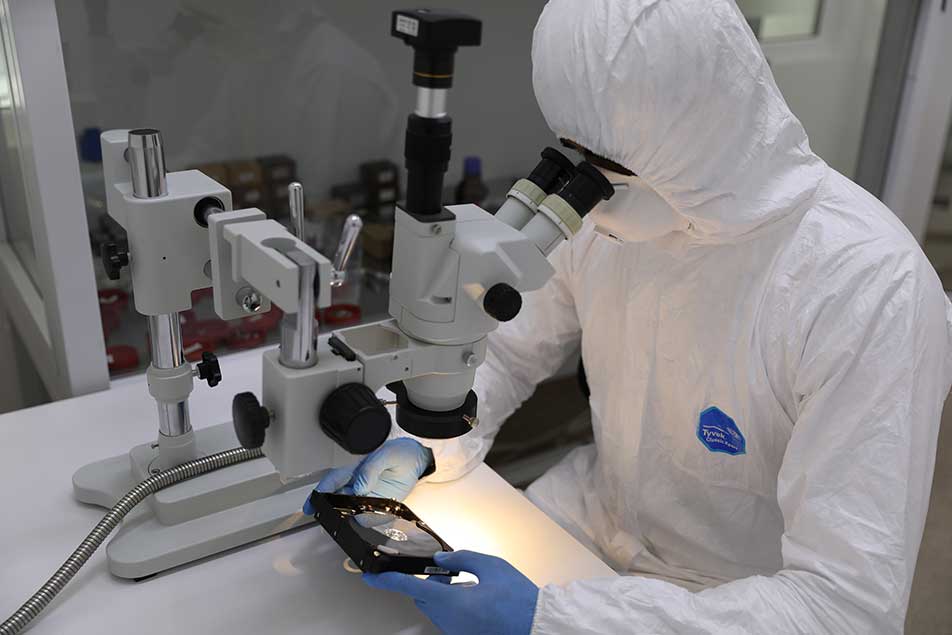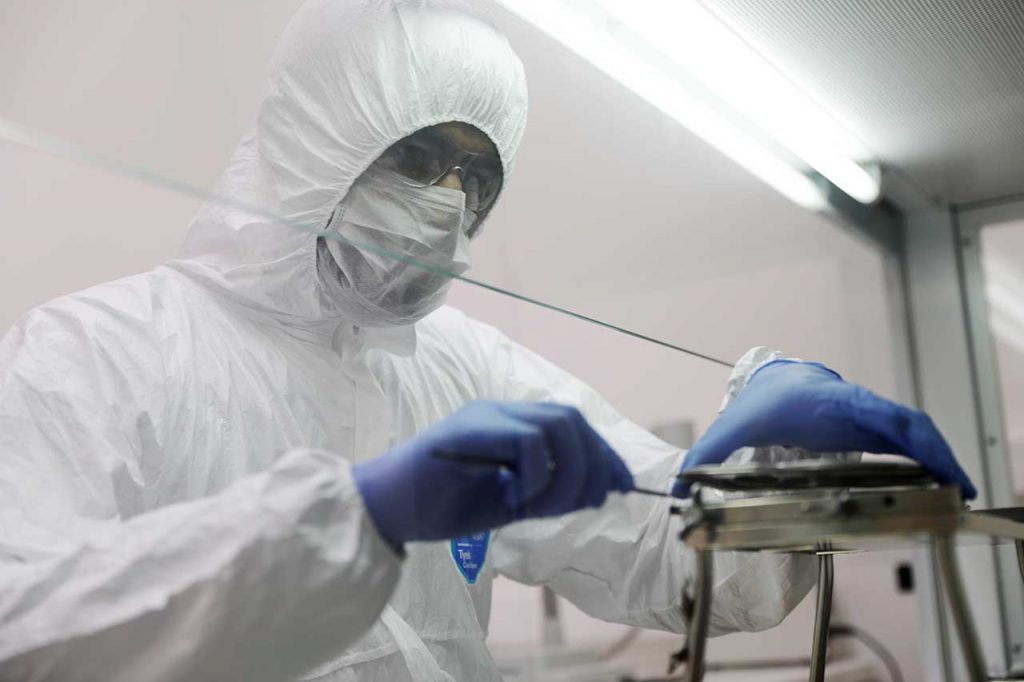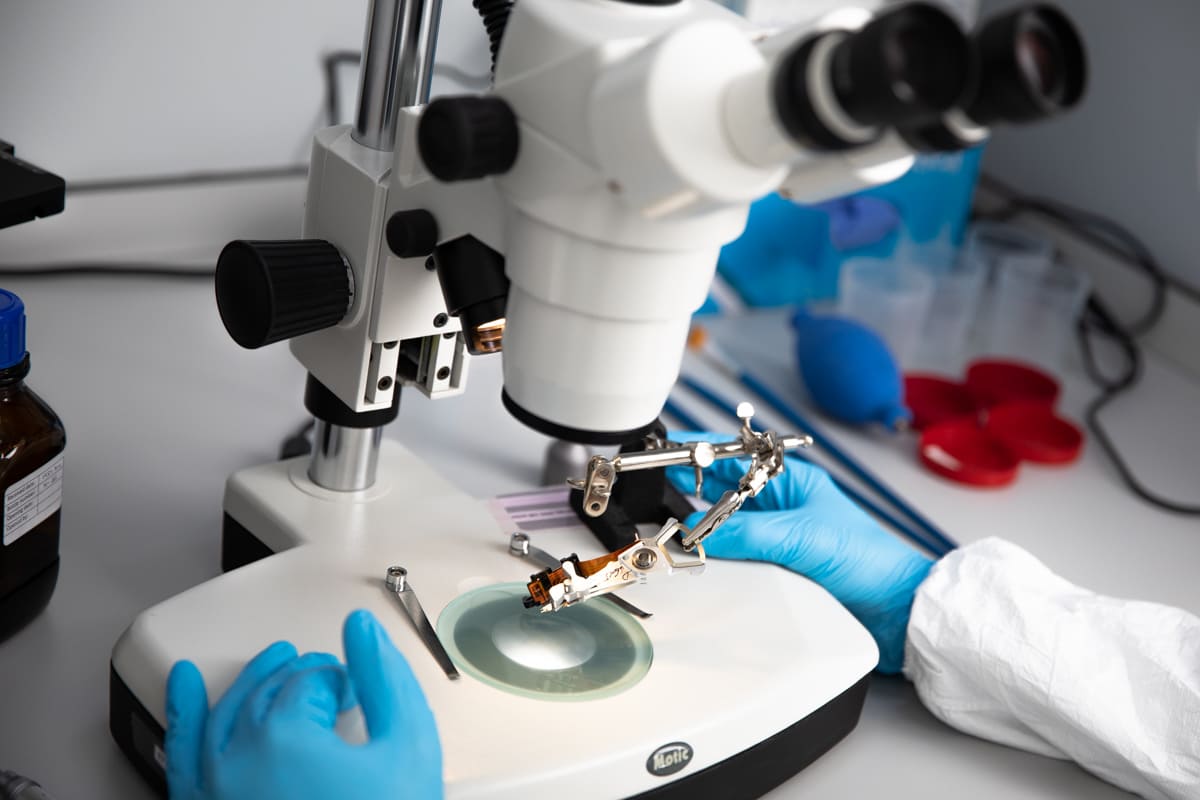Cleanroom facilities are commonly used in the data recovery industry and in other fields where a safe process has a significant part. Such industries as pharmacy, medical equipment, scientific research, and also food manufacturing use cleanrooms.
A Cleanroom is a space with a controlled environment and minimized level of pollutants with appropriate humidity and temperature.
The external environment can be very harmful. We do not feel dust particles, airborne microbes, dirt, and chemicals in our daily life. But restoring failed devices in such an environment can be very dangerous, and PITS Global Data Recovery Services does everything to provide clients with the safest process.
Failed hard drives, RAIDs, and flash drives are very sensitive, so pollutants in the environment can easily affect damaged devices. This is why opening and repairing failed media in a cleanroom is vital for a successful recovery.
How Do Cleanrooms Work?

A clean room’s environment is provided with appropriate and constant 70 degrees Fahrenheit temperature, 50% humidity, and clear air. When creating this space, it is crucial to pay attention to materials.
This facility requires special ceilings, floors, desks, partitions, and more details. Moreover, the place must be kept clean all the time. Hence, the facility requires specific air filtration, which supports constant airflow in a room.

The cleanroom has advanced air filtering systems equipped with HEPA and ULPA filters to catch even the tiniest airborne particles and deliver clean air to the necessary zones. These facilities should be constantly controlled and monitored very closely.
PITS Global Data Recovery Services regularly measures and tests the ISO Certified Class 10 Cleanroom to ensure that it is running properly.
Recovering Data Without Cleanroom
Our data recovery specialists can not imagine the recovery process without a certified cleanroom. Utilizing cleanroom facilities is very important for performing recovery procedures. To repair any physically or mechanically damaged device, engineers should work in a cleanroom to save the initial state of the storage.
In most cases, engineers have to open a device to expose it, and without a clean room, microbes or dust particles can settle on the failed device. This can seriously significantly affect the recovery process. As an outcome, there is a high risk of losing all the data permanently.

Recovering Data in a Cleanroom
Our company would like to share some of the guidelines that we follow when restoring data in a cleanroom. After our customer service receives a recovery case, our specialists get it right in our cleanroom. Without preliminary preparation, no one is allowed to enter the cleanroom. The specialists need to wear specific lint-free bodysuits, head coverings, gloves, masks, and overshoes.
Then, at the entrance, our technicians pass through an air blast to minimize environmental contamination and remove all particles. Our cleanroom employs local parts storage and state-of-the-art technologies to provide a smooth and fast recovery process.
We store all restored data on our secure servers, and after a client receives his data, we delete all the files from our system. To assure our customers of our responsibility, we obtain and support different international certifications, including the ones for data privacy controls.
Sometimes users, trying to save some of their time, watch DIY tutorials to create the cleanroom themselves, but this approach is not correct. Trying to open the drive in unspecialized facilities and recover the files is not a good idea. Probably, you will lose a lot of time and risk facing permanent data loss.
If you have any questions about our cleanroom facilities or data recovery process, please get in touch with our customer service and consult with skilled experts. You can fill in the request form or call us at (888) 611 0737. We will get back to you in a few minutes.
